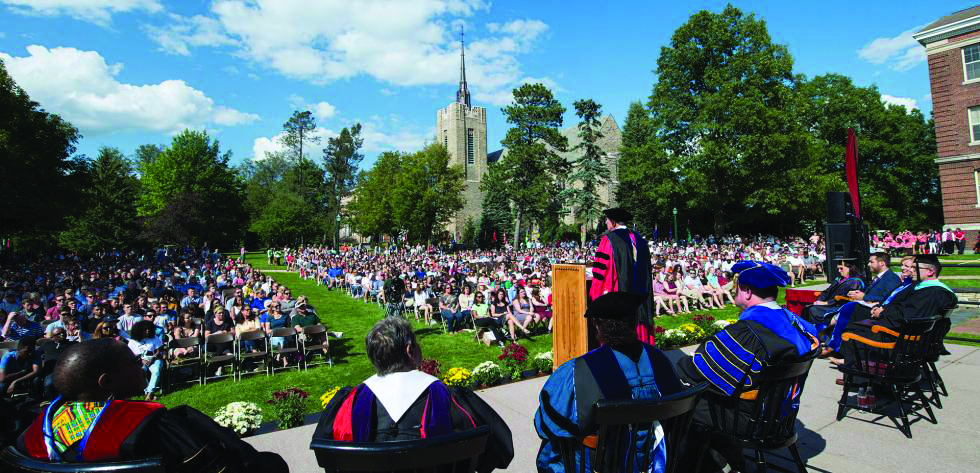This year, St. Lawrence welcomed the largest first-year class in recent history. Totaling just over 700 students, the class represents a marked increase in the number of students SLU accepts.
This increase in accepted students comes at a time when other private universities in New York State are navigating the adverse effects generated by the newly unveiled Excelsior Scholarship. The scholarship, which covers the entirety of various SUNY schools’ tuition for some New York State residents, has led to a decreased enrollment of students at certain private NY-state universities. Clarkson University is one such university; the school witnessed a drop in their enrollment of around 100 students this year.
Yet St. Lawrence managed to go above and beyond their target for admission this year more than four percent over according to a report in North Country Now.
In keeping with St. Lawrence’s pledge to increase the diversity of our student body, the Class of 2021 incorporates individuals from various walks of life. While the Class of 2020 brought in 54 international students, the Class of 2021 includes 69 students, who call nations outside the U.S. home. While the sheer number of international students has increased, the actual ratio of international to national students has not. The Class of 2020 contained only 556 students, which is significantly lower than this year’s first-year class, thus the minor increase of 15 international students is not as impactful as it may seem at first glance.
As of Fall 2016, the university had a student body composed of 8.5 percent international students. The Class of 2021 will hopefully increase this number, as it is composed of a little over nine percent international students.
In addition, 16 percent of the individuals are first-generation university students- meaning they are the first in their families to attend college.
Many of the students coming to SLU this year hail from the Northern New York region. 44 students from the area will be coming in as beneficiaries of the Augsbury/North Country Scholarship Program, a program set up to provide aid for students living in the North Country who have displayed strong qualities of leadership and academic commitment. The aforementioned students receive an annual merit scholarship as well as high levels of financial aid.
Moreover, the Class of 2021 is constituted of more than 14 percent students of color. The increase in students of color does enhance the multiplicity of the overall campus, as the number of students of color on campus weighed in at only a hair over 11 percent last fall; yet it is clear that the university still has room for improvement.
President William Fox’s pledge to increase diversity has generated a number of positive results, including a stronger push for change within the student body and the installment of a new position, the Associate Dean of Diversity and Inclusion, but the University remains a predominantly white institution. In order to counteract this, the rates of acceptance of students of color will have to continue to trend upwards in the coming years.



